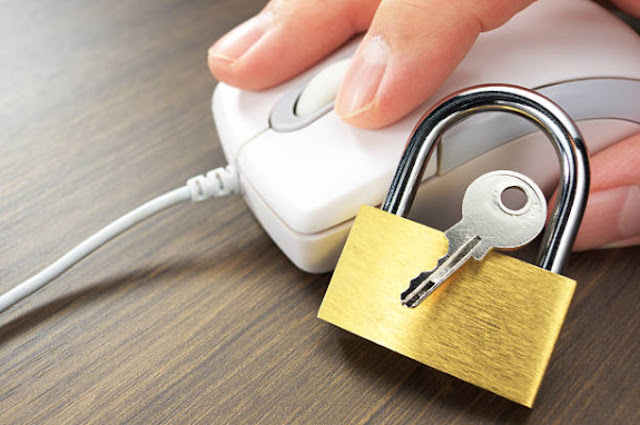
Passkeys: The Beginning of the End of the Password
In ultra-modern virtual age, passwords have turn out to be an crucial part of our every day lives. We use them to defend our emails, bank bills, social media profiles, and a large number of different on line services. Passwords were the usual technique for authentication and access manipulate for decades, however they arrive with a slew of problems, from security vulnerabilities to person inconvenience. The idea of passkeys offers a promising technique to those troubles, doubtlessly marking the beginning of the give up of the traditional password.
The Password Predicament
Passwords have long been the primary means of securing our digital identities, however they're far from best. Several demanding situations are associated with password utilization:
Security Vulnerabilities: Passwords may be stolen, guessed, or cracked. Weak passwords, password reuse, and insufficient storage methods lead them to vulnerable to various assaults, such as brute force and dictionary assaults.
User Inconvenience: In an attempt to beautify safety, many services require complex passwords, main to a trade-off between protection and convenience. Users are frequently required to consider multiple passwords or hotel to using password managers, which may be complicated to set up.
Forgotten Passwords: The sheer variety of passwords we need to recall results in a huge variety of password resets, which can be both frustrating for customers and highly-priced for service providers.
Phishing and Social Engineering: Passwords may be compromised thru phishing attacks, where malicious actors trick customers into revealing their credentials. These attacks are often a hit due to person consider and absence of powerful person schooling.
Passkeys: A New Approach
Passkeys, additionally called passwordless authentication, represent a paradigm shift within the manner we comfy our virtual bills. Instead of counting on conventional passwords, passkeys use different strategies for person verification. Here are a number of the key additives of passkeys:
Biometrics: Passkeys can utilize biometric information, which includes fingerprints, facial recognition, or iris scans, to verify a person's identity. These biometric identifiers are unique to every man or woman, making them enormously relaxed.
Two-Factor Authentication (2FA): Passkeys regularly comprise 2FA, including a further layer of protection. This would possibly contain some thing you recognize (a PIN), something you have got (a mobile device), or something you're (biometrics)
Token-Based Authentication: Tokens or cryptographic keys can update traditional passwords. These keys are stored securely at the user's device and are used for authentication without the need for memorizing lengthy strings of characters.
The Benefits of Passkeys
Passkeys offer numerous benefits over conventional passwords:
Enhanced Security: Biometrics and cryptographic keys are hard to replicate or scouse borrow, making passkeys more cozy than passwords. Additionally, 2FA presents a further layer of protection.
User Convenience: Passkeys eliminate the want to do not forget passwords, making the authentication manner greater sincere and person-pleasant. This can lessen consumer frustration and the number of aid requests related to forgotten passwords.
Reduced Phishing Vulnerability: Passkeys are much less liable to phishing attacks in view that they depend on some thing you're (biometrics) or something you have got (tokens), which are more difficult for malicious actors to imitate or control.
Improved User Experience: Passkeys streamline the login technique, improving the overall person revel in and reducing friction related to authentication.
Cost Savings: Password-associated support fees can be full-size for organizations. Passkeys can lessen the want for password resets and aid, resulting in potential fee savings.
and Considerations
While passkeys provide big benefits, there are also demanding situations and issues to address:
Biometric Privacy: Storing and the usage of biometric records need to be done carefully to guard person privacy. Data breaches or misuse of biometric facts may have excessive consequences.
Device Dependency: Passkeys frequently depend on unique devices, together with smartphones, for authentication. This may be limiting for customers who do not personal those devices.
Initial Implementation Costs: Adopting passkey era might also require an initial investment in hardware and software program, but it may lead to lengthy-term financial savings.
User Education: Users need to recognize how passkeys paintings and a way to use them securely. Proper schooling and training are important for the a hit adoption of passkeys.
The Road Ahead
The shift from traditional passwords to passkeys is already underway. Many main era organizations, such as Apple and Microsoft, have included passkey capabilities into their services and products. The FIDO (Fast Identity Online) Alliance, an industry consortium, is operating to set up open standards for passwordless authentication, similarly driving the adoption of passkeys.
As passkeys benefit traction, we are witnessing the beginning of the end of the traditional password. However, it's crucial to be aware that this transition will no longer happen in a single day, and the coexistence of passkeys and passwords is likely for some time. Passkeys will no longer replace passwords completely, as legacy systems and customers who're sluggish to undertake new generation will continue to rely upon traditional passwords.
In end, the move in the direction of passkeys represents a vast step inside the evolution of authentication and access manipulate in the digital international. While passwords have served us nicely within the beyond, their shortcomings are getting more and more obvious. Passkeys, with their emphasis on safety, person convenience, and advanced user revel in, provide a compelling opportunity. As era continues to improve, passkeys are poised to revolutionize the manner we comfortable our digital identities, marking the beginning of the give up of the traditional password.